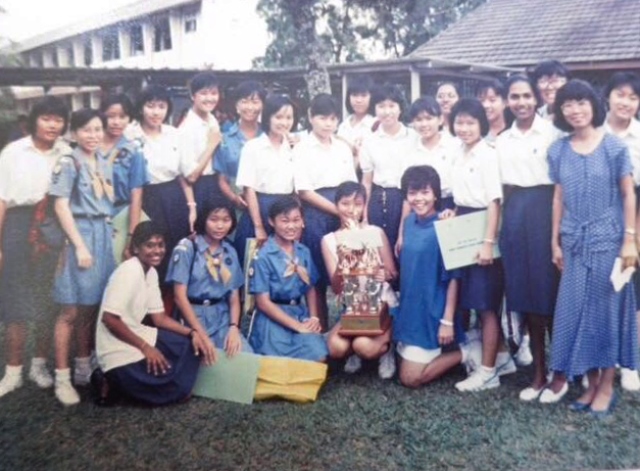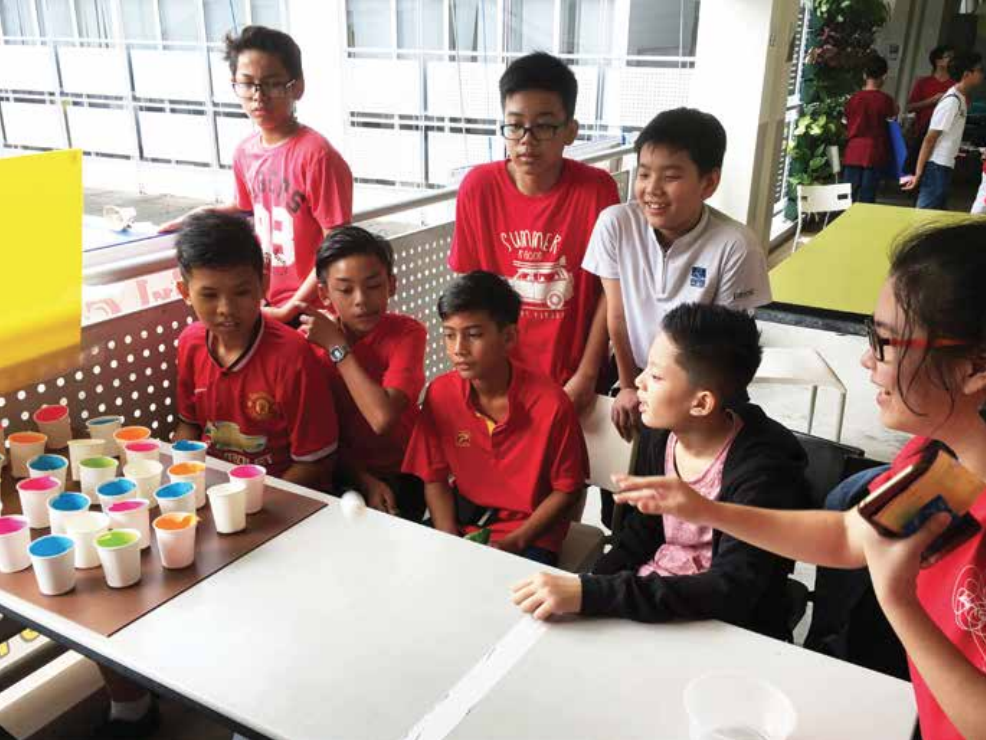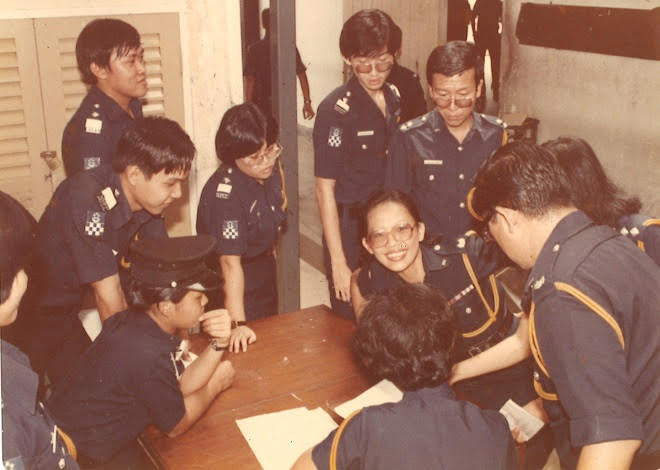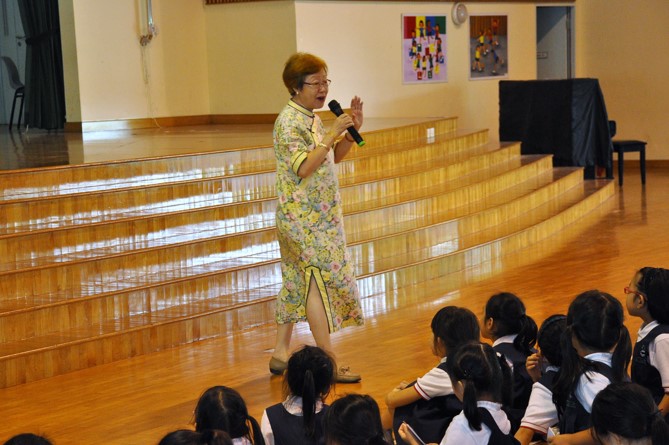No Hurdle too High
18 Mar 2016

When the Singapore school system went through a period of revolutionary change in the ’60s and ’70s, pioneering educators like Angela Ow ended up having to study harder than their students to stay relevant in teaching.
When the nation issued a call for technical teachers in the mid ’60s to help train a workforce to drive Singapore’s industrial development, Angela Ow was one of just a handful of female teachers who signed up to learn and teach Woodwork and Technical Drawing.
“There was no such thing as ‘I can’t do it’. That was the spirit of teachers at the time,” says Mrs Ow, 70, who officially retired in 2007 but continues to train teachers while also working at the MOE Heritage Centre as a consultant.
For all of 1968, she attended Queenstown Technical School in the evenings to learn the skills of technical drawing and woodworking. What Mrs Ow went through wasn’t unusual in the ’60s and ’70s. Whether it was in response to calls from the fast-developing nation, the Ministry or the school, many teachers had to step outside their comfort zones.
In the course of her 44-year career in schools and MOE HQ, this wasn’t the only time Mrs Ow had to rise to a challenge.
Out of the comfort zone
As a young teacher, Mrs Ow – who embarked on her career with an O-Level certificate– had to teach a variety of subjects such as Science, Geography and History. Typically, like other teachers then, she was informed of the subjects she’d be teaching just two months before the start of each school year. To familiarise herself with a new teaching area, she had to do much work and “learn” more content from library resources before she could teach. “So, at times, I felt like I was just a few steps ahead of the students.”
Later, Mrs Ow found herself having to venture into even more unfamiliar territory. When she went on to teach at St Gabriel’s Secondary School in 1970, she was tasked with teaching music, which involved singing and recorder playing, to Secondary One and Two students, based on little more than the fact that she had taken the Grade 5 music theory examination. “I thought ‘That’s theory, not practical!’” she recalls thinking at the time. “I did learn the piano but I was a hopeless player!”
Nevertheless, Mrs Ow taught herself how to play the recorder from books and enlisted her students’ help in organising and developing simple music scores. It was a collaborative effort, which Mrs Ow says the students enjoyed. In the end, her “recorder boys” as she calls them, came up with the idea of introducing percussion instruments and recorders that could play different pitches, and of playing “fun songs” instead of the usual classical repertoire. They eventually became so good that they were asked to perform on stage during school events. This was a valuable teaching experience that Mrs Ow always remembers with gratitude. She could not have taught music successfully without her “recorder boys’” innovation and creativity.
Driven to succeed
Mrs Ow took up teaching like most girls who completed O-Level at that time. “We were poor and teaching was a respected occupation available for girls without a university education,” says Mrs Ow.
Having studied in a Convent for 10 years, Mrs Ow describes her first encounter with rambunctious boys, which came during her first posting at Tiong Bahru Primary School, as a “culture shock”. Overcoming fleeting thoughts of resigning, she stuck it out and even resolved to upgrade her skills.
First, Mrs Ow self-studied for an A-Level certificate, which she earned in 1966. Then she took leave from the MOE to obtain an Arts degree in 1983. At the time, the system was clear: Those without A-Level taught at primary schools, A-Level holders could move on to lower-secondary levels, while degree holders taught upper-secondary levels.
Mrs Ow had to apply to the MOE three times for leave to pursue a degree before getting the green light. She says, “I was not advancing in my career because I needed more content knowledge and paper qualifications! So I got them. One has to be practical in life to be successful.”
Treating kids like your own
In the end, what kept Mrs Ow going was the realisation that she loved interacting with the students. “If you asked me to prioritise, I would say my happiest time was when I was actually teaching,” she says.
Mrs Ow also relished making a difference and doing what she felt was right for the students, which in some cases involved making decisions that proved she was ahead of her time.
For instance, at Tiong Bahru Primary School, the first school where Mrs Ow taught, she took her nine-year-olds on “learning journeys” to the farms behind the school to observe water plants in the pond. It was a time when few teachers would have dreamt of taking their pupils out of the classroom. On one such journey, one of her boys fell headlong into a pond.
“A farmer fished him out but if anything had happened to him, my career could have been over! So while teachers these days complain about the Risk Assessment Management System, I think it’s a good thing,” she says.
Mrs Ow’s philosophy in pupil management is to treat her students like her own two sons – what she would not do to them, she would not do to her students. It was during her time as the first female principal of Serangoon Garden Secondary from 1989 to 1991, that she was put to the test.
The school had classes from Sec One to Pre-U 3. To distinguish between the secondary and Pre-U level, traditionally, only boys at the Pre-U level could wear long pants. Mrs Ow sought teachers’ and students’ feedback and decided to also allow those in Secondary Three and Four to wear long pants. “For the boys who have by now grown taller and bigger, being able to wear long pants, like the upper secondary boys in other schools, was a big deal,” she says.
Some of Mrs Ow’s students who had completed their N-Level examinations went to work instead of coming to school. After all, lessons had officially ended. She remembers a boy who had the gift of sniffing out a great durian, and another who could roast the perfect duck. How should she handle these students? She decided not to punish them.
“Be practical. They need the money and are making good use of their skills,” she recalls thinking. “Even if they came to school, they would probably switch off and learn nothing.” Her decision paid off as these students came back the next year and studied hard to obtain decent O-Level results.
She also told the 1,900-strong school population that she didn’t care too much about the fine print in the rules-and-regulations handbook – “the more rules you have, the more you have to police” – but the most important thing they had to do was to respect their teachers and the school property.
Today, Mrs Ow remains close to her students. She’s part of a WhatsApp group started by her first batch of Tiong Bahru Primary pupils, now aged 60. Her students from St Gabriel Secondary and Serangoon Garden Secondary still keep in touch with her. She says of the boy from Serangoon Garden Secondary who was caned for vandalism of school property, “He is still my good friend and is doing well in life.”
Indeed, treating students like her own children and always having their best interests at heart is not only the most practical approach to teaching, in her opinion. It has also kept her motivated over the years to surmount challenges and never stop improving.
“You must have that connection with students,” she says. “It’s enduring.”





.jpg)